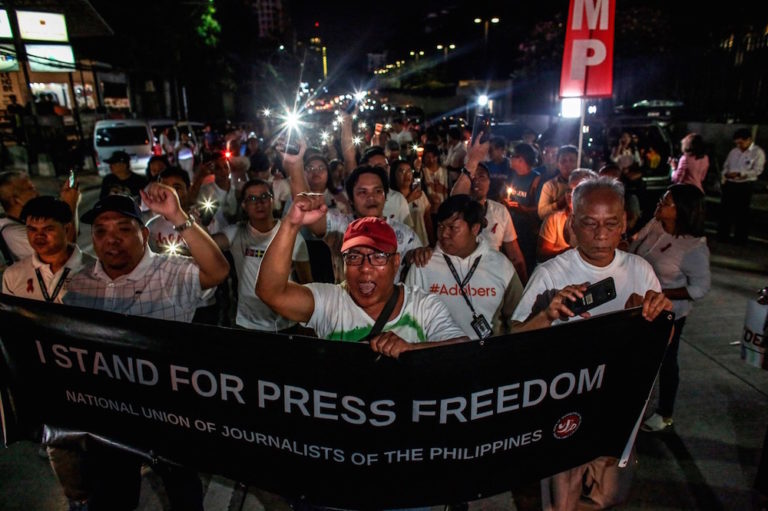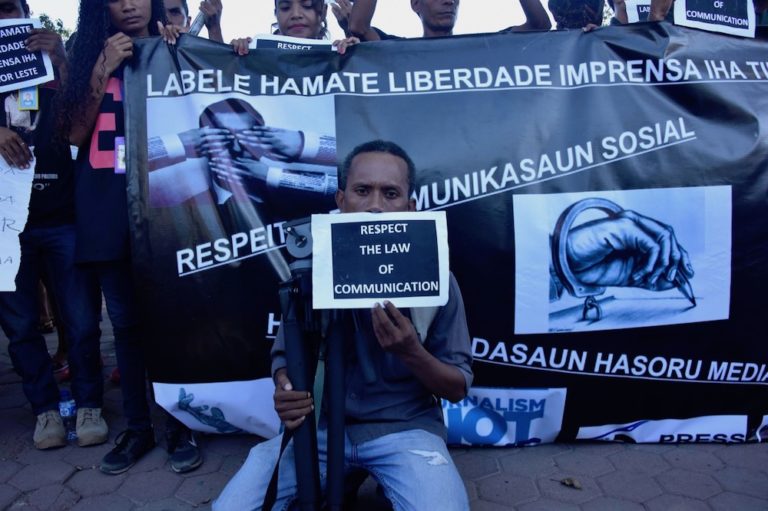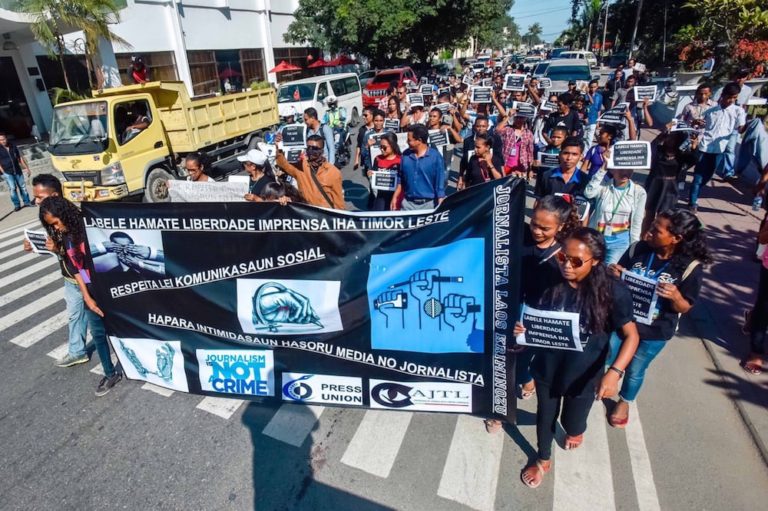(PINA/IFEX) – A former pro-Indonesian militia commander claims the Indonesian Information Minister, Yunus Yosfiah, had a direct role in the killing of five newsmen during the 1975 invasion of East Timor, the “Sydney Morning Herald” reported on 21 June 1999. The “Sydney Morning Herald” report was written by Jill Jolliffe, an Australian freelance writer who […]
(PINA/IFEX) – A former pro-Indonesian militia commander claims the
Indonesian Information Minister, Yunus Yosfiah, had a direct role in the
killing of five newsmen during the 1975 invasion of East Timor, the “Sydney
Morning Herald” reported on 21 June 1999. The “Sydney Morning Herald” report
was written by Jill Jolliffe, an Australian freelance writer who has covered
East Timor for twenty-five years and is the author of two books on the
Indonesian invasion. Jolliffe is working on a third book, on the killing of
the Australian-based newsmen.
**Updates IFEX alerts of 14 June, 31 May, 28 May, 25 May, 18 May, 10 May, 21
April, 20 April and 29 March 1999**
Jolliffe’s “Sydney Morning Herald” report says in part: “The commander said
he watched the unarmed journalists standing outside a house in the town of
Balibo as the then Captain Yunus and soldiers under his command opened fire
on them. He said Mr Yunus had ignored their pleas for mercy as they fell in
a hail of bullets.
“The new witness to an event that has scarred relations between Australia
and Indonesia for more than two decades fled Indonesia recently and is in
hiding. He is seeking political asylum in Australia and has been extensively
interviewed by diplomats.
“The journalists killed in Balibo on October 16, 1975, were Greg Shackleton,
Gary Cunningham and Tony Stewart of Channel 7, and Brian Peters and Malcolm
Rennie of Channel 9. Mr Cunningham was a New Zealander, and Mr Peters and Mr
Rennie were English.
“Mr Yunus, who has consistently denied involvement in the deaths, was field
commander of the Balibo attack. He is now one of the most influential
members of the Habibie Government. Two weeks ago Mr Yunus denied knowledge
of the killings, but admitted for the first time, in an interview with the
‘Herald’, that he had led the Balibo raid. He said there were false versions
of what happened, including ‘that I asked the journalists to stand against
the wall and I shot them’. “The former Timorese militia leader is the fourth
witness to the killings to have left the former Portuguese territory and
spoken out,” the “Sydney Morning Herald” report says.
Background Information
East Timorese are scheduled to vote on 8 August in a referendum on possible
independence from Indonesian rule for the territory of 800,000 people. Six
international media workers were killed when Indonesia invaded East Timor in
1975. Organisations such as the International Federation of Journalists
(IFJ) and Australian colleagues have called for investigations into
continuing allegations they were deliberately killed by Indonesian forces or
forces under Indonesian control (see IFEX alerts).
On 25 May 1999, Indonesian and Australian journalists’ organisations said
they will open a media safety office in the East Timor capital, Dili,
Australian Associated Press (AAP) reported. The announcement came amidst
attacks and threats by pro-Indonesian militia trying to stop journalists
covering violence and intimidation in the lead up to the August referendum.


